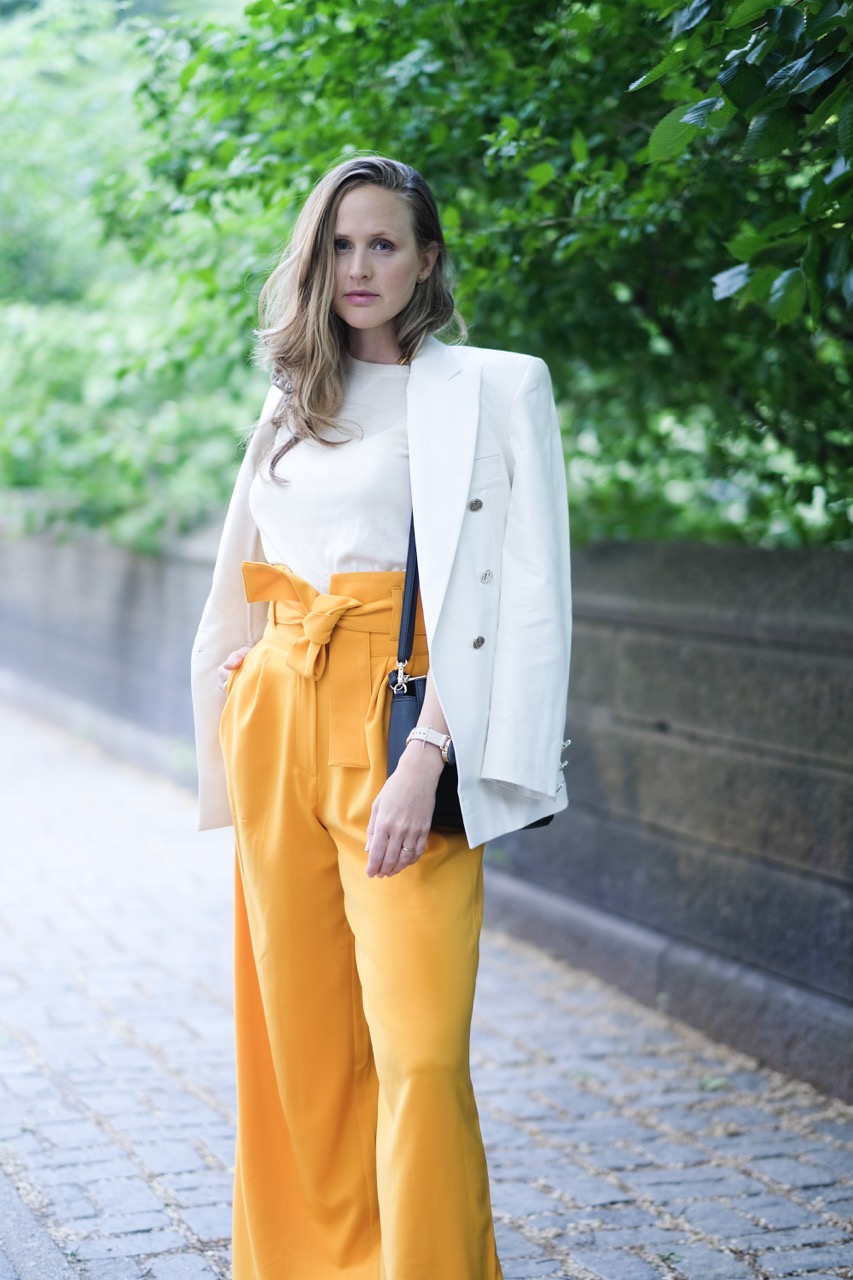Anne Therese Gennari is a speaker, educator and author of The Climate Optimist. Anne strives to teach her community to empower themselves as citizens and understand how small shifts in habits and mindset will invite positive change into all areas of your life. We caught up with her to learn how we can all become climate optimists.
Can you tell us a bit about yourself? Where did your climate journey first begin?
Growing up in the countryside of Sweden, I got connected to nature from an early age, but it wasn’t until I watched The Inconvenient Truth by Al Gore in my early teens that something clicked for me.
I was terrified by this thing called climate change but glad we finally knew about it so that we could act accordingly. However, when the world failed to do so, my climate anxiety grew. Back then, no one was talking about climate change, let alone eco-anxiety, so I was fairly alone in my thoughts and worries.
It wasn’t until later years that I’ve been able to reflect and recognize that I was hurting mentally from an early age. The book that I wrote is somewhat of the handbook I wish I had all along, a guide for growing emotional resilience and finding optimism in taking action.
“When it comes to climate change, we’re asked to panic. But fear will never drive long-term, sustainable change, so it’s time we tell a new story” - can you tell us a bit more about fear driven change?
We're so used to talking about climate change in negative, “gloom and doom” terms, hoping that the fear of the outcome will spark people to take action.
But both neuroscience and conducted studies point to the opposite—such reporting actually causes the brain to freeze, and for people to do nothing. This realization is what my core mission is built upon: we must shift the narrative on climate change so that we can act from courage and excitement, not fear.
You’ve discussed Climate Change causing fear and anxiety, how did you personally make the switch from climate fear to climate optimism?
I had my big climate optimist awakening one night at my parent's house in my early twenties. I had just had another conversation with my family about something environment related and as always when I sparked those conversations, it felt like a lost battle.
It led me to have breakdown on the floor where I cried and cried and entered an almost metaphysical, paralyzed state. It was almost like a shedding, of some sort. Afterward, a message came through to me: You’re here to be a climate optimist.
It brought me on a long journey of soul-searching and discovery. I understood that I had to do this in a different way - my angry approach wasn’t having much success in inspiring change. People just don’t like to listen to those who are angry.
However, it wasn’t a straight road, and navigating optimism can be tricky. At first, I fell into what’s referred to as “toxic positivity” and I tried to ignore all the negative which only led my climate anxiety to grow.
Growing emotional resilience takes work, and it doesn’t serve to sway away from difficult feelings. Instead, when you learn to work with your emotions and find ways to let them empower you, that’s when you become a force to be reckoned with.
As a speaker, author, and educator - how have you found building a community within your work?
Without community, it’s really hard to remain an optimist. One of the key things I teach in my book is how tending to self-care is essential for our work, but also that a piece of self-care comes from being part of something bigger.
I like to think of our journey towards a better, just, and sustainable world as a “road trip” - which are always more fun with someone to ride along with, to share the good and the bad.
I used to believe I was alone in wanting to “change the world” but I know now I couldn’t be more wrong. The world is filled with passionate people who want to see positive change, and finding those people is what will make that change possible.
In making the switch to climate optimism, what would be the first thing you recommend to your community to action?
It’s all about shifting narratives, and one of the most important ones for me is the one of responsibility to opportunity. We tend to think we carry this huge responsibility to “fix” the world and hand over a liveable future to our children, but I believe there’s a lot of danger in thinking that way.
It’s a responsibility way too big for anyone to shoulder, and the chance of running out of motivation to keep going is too high, which goes back to the fear-based change narrative.
Instead, skipping the responsibility piece and recognizing that what we do is incredibly important as we live through these times, we get to see ourselves in a different light. To be alive today means living through important history, and we have an incredibly exciting opportunity to participate in this shift and help write the script of whatever comes next.
“This world needs a lot of things, but more than anything, it needs curious and courageous souls who are not afraid to question themselves and grow.”
Have you recently seen any systemic environmental progress that has made you more optimistic?
Yes, and they are many! Skip the Stuff, officially titled 559-A, is a new law I helped push for in NYC. It was passed earlier this year and will make it so that any restaurant in New York City can only hand out disposable plastics if the customer requests it.
Working with choice architecture is a powerful way to help nudge consumer behavior in the right direction. Another great example is how Mayor Eric Adams made plant-based meals the default option at all of New York’s hospitals. Although meat options are still available upon request, they saw that the number of plant-based meals rose significantly—which is great both for people and the planet!
What are you excited to see change, and what can we do as a community to drive the force for good?
I’m excited to see schools stepping up when it comes to climate communication. I was thrilled to learn recently that the state of New Jersey is making it mandatory for all teachers to address climate change in class, making them the first state to do so.
By increasing the number of conversations we have about climate change we can normalize the issue and break some of those barriers to actions. When we can localize the topic and make people understand that climate change is already affecting all of us, and everyone can play a role in changing the direction forward, we can activate the change that’s so needed.
We have the science, knowledge, and technology to reverse climate change and build upon a sustainable and regenerative tomorrow. What we need now is a curiosity from all of us to unlearn and relearn, paired with a willingness to accept change. Once we activate that, I think we’ll be astonished by how fast things will start to happen.
Imagery by Svetlana Blasucci.
Shop the article
Read more
ENVIRONMENT
Creating Climate Optimism with Anne Therese Gennari
Anne Therese Gennari is a speaker, educator and author of The Climate...
ENVIRONMENT
Finding Beauty In Nature With Dominique Palmer
Dominique Palmer is a 23-year-old Youth Climate Justice Activist,...
ENVIRONMENT
Intersecting Social And Environmental Justice With Aditi Mayer
While her frustration grew due to the lack of justice for the environment...
ENVIRONMENT
Curiosity and Connection amidst the Climate Crisis, with One Earth’s Justin Winters
It’s no secret that we’re in the midst of a pivotal moment in the climate...
ENVIRONMENT
Do you #KnowYourLeather?
The Slow Fashion Movement organization is on a mission to educate and...




